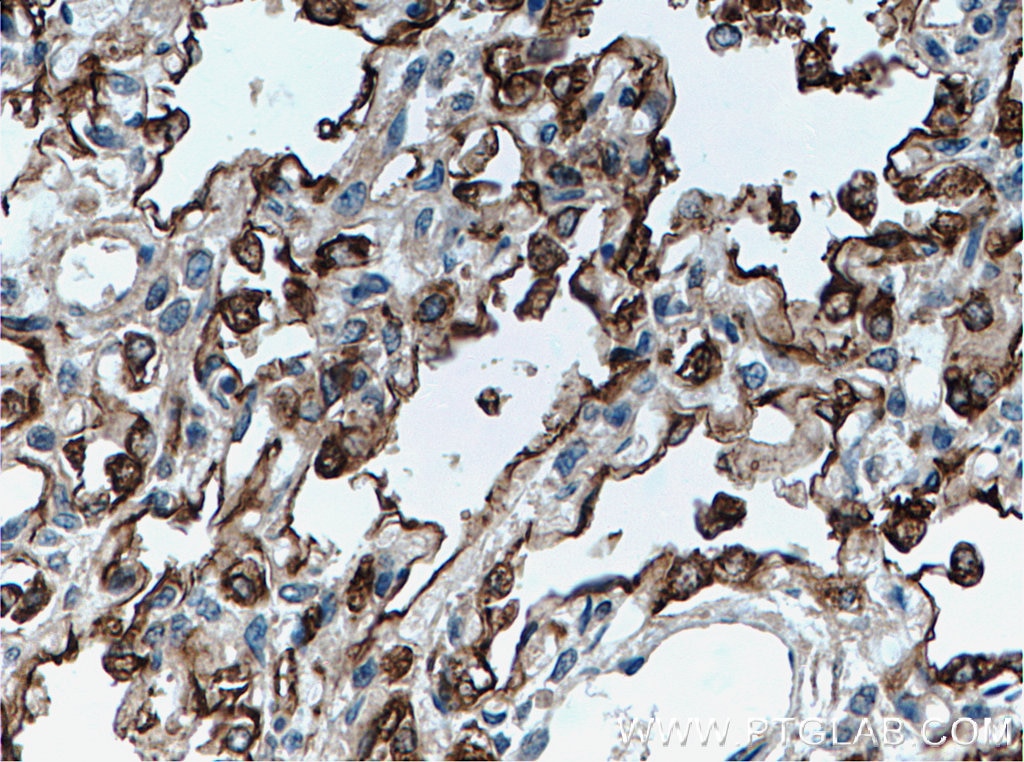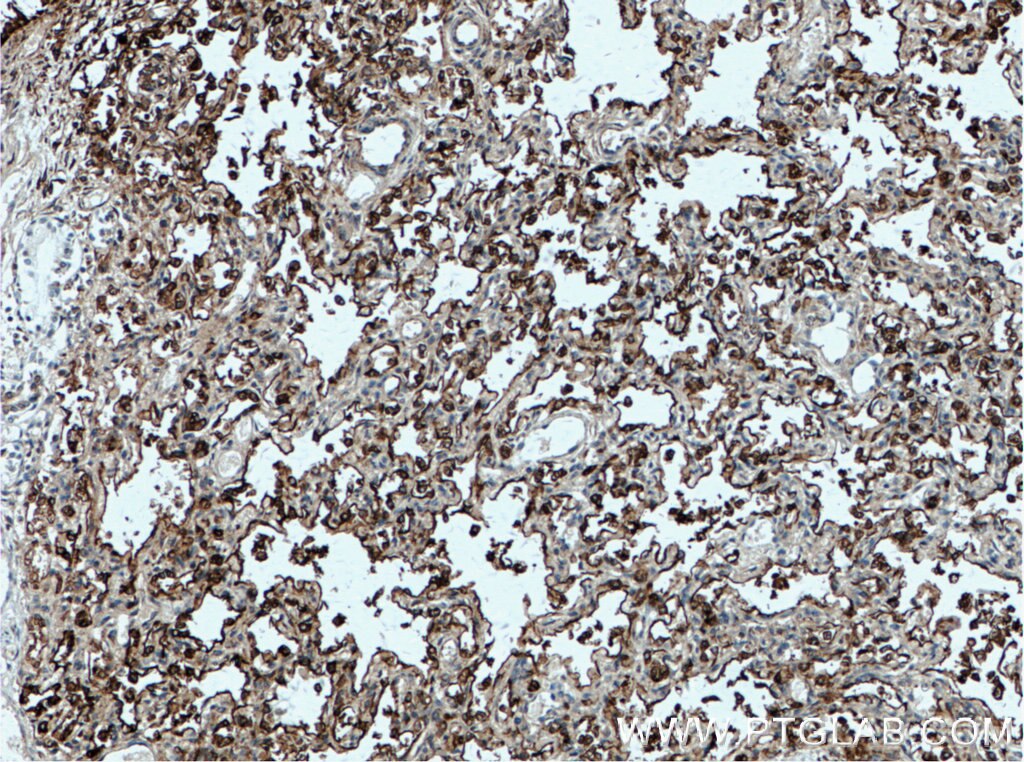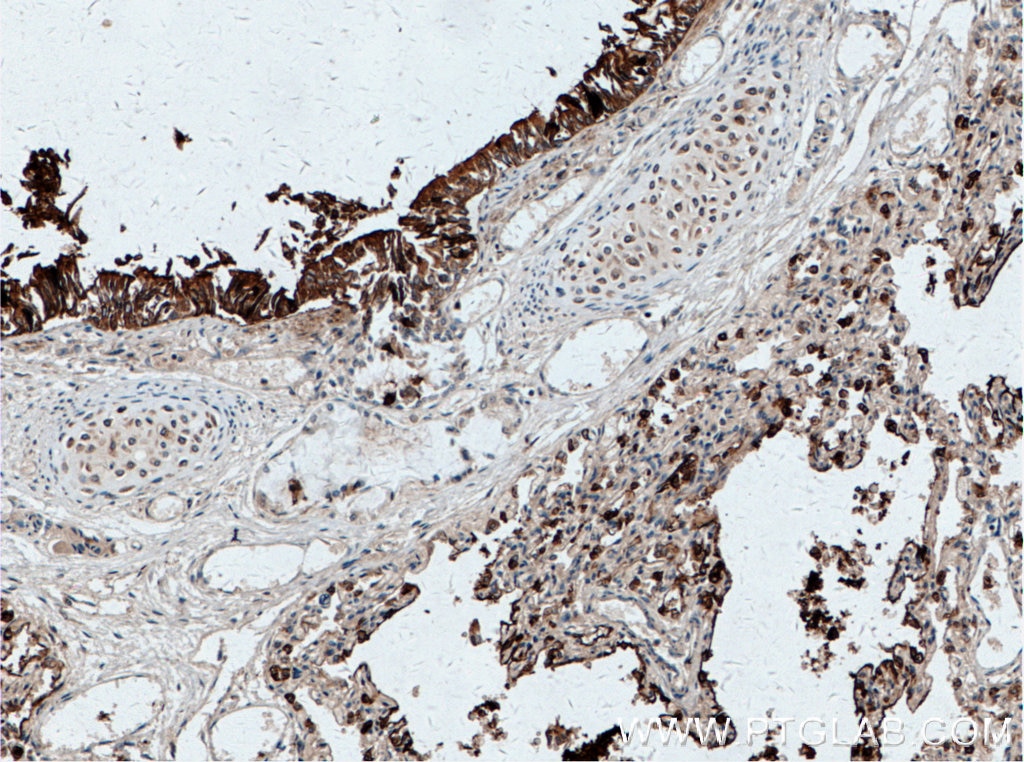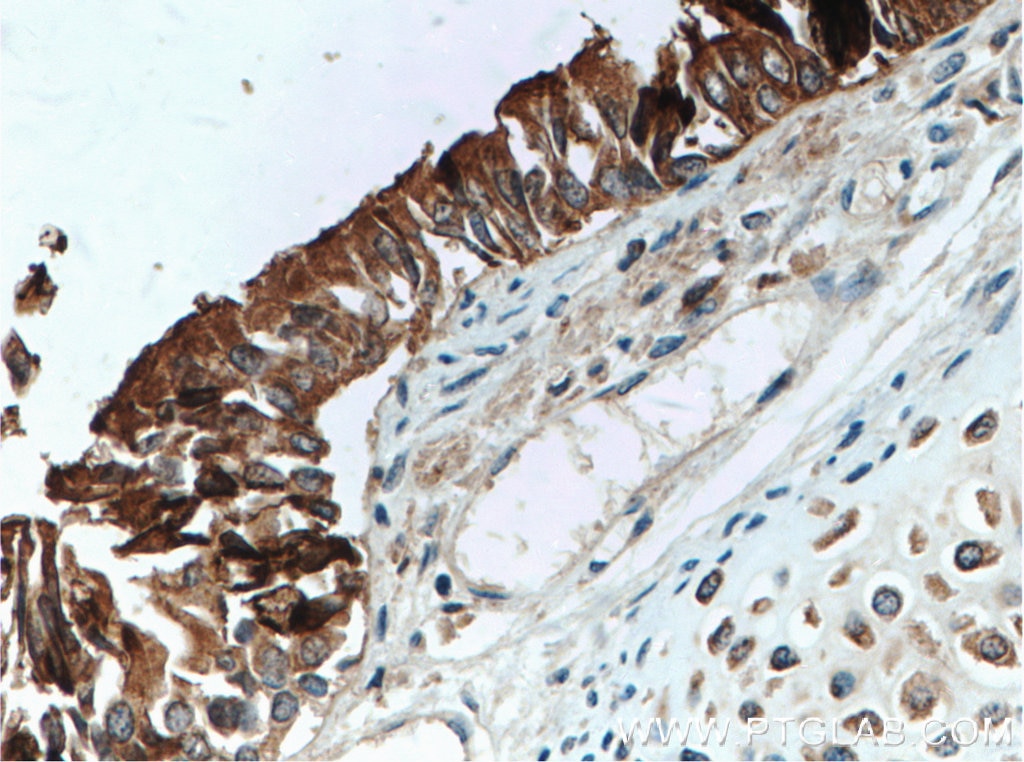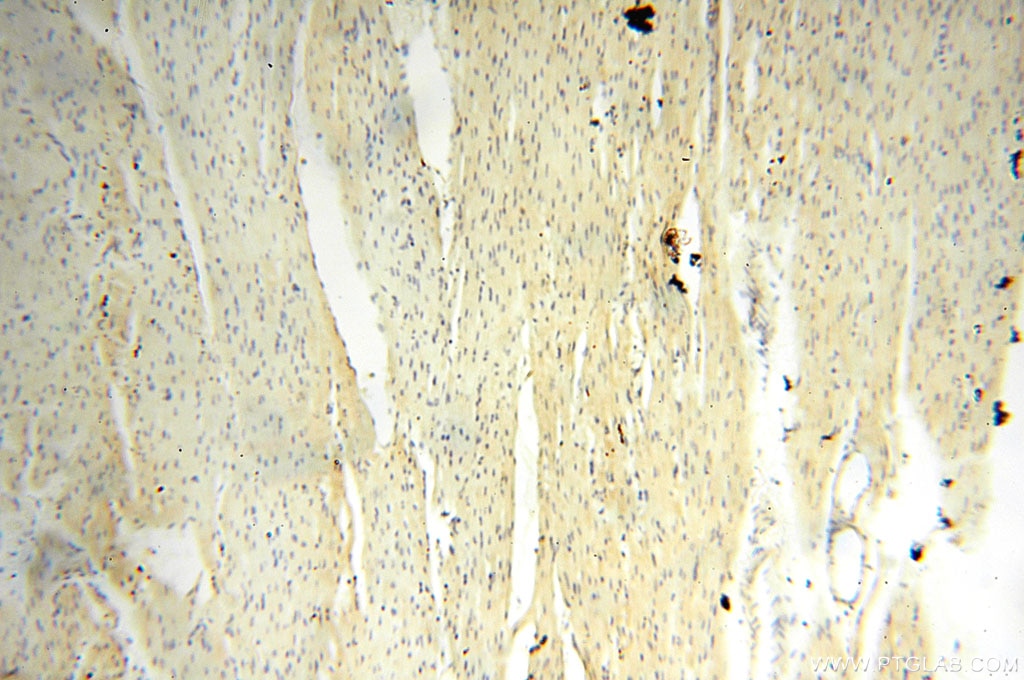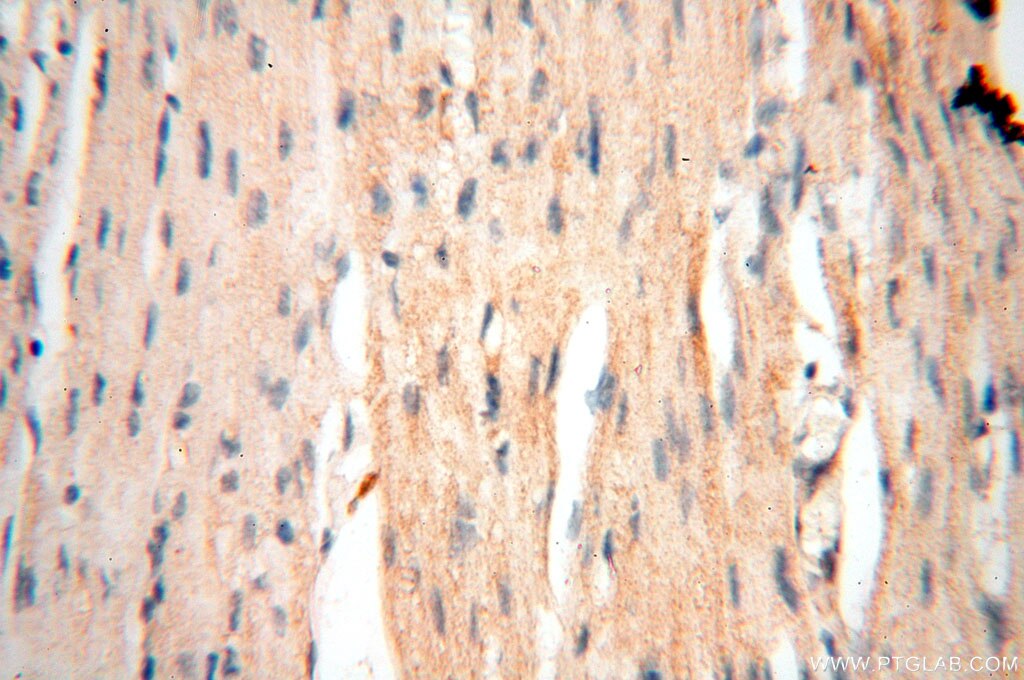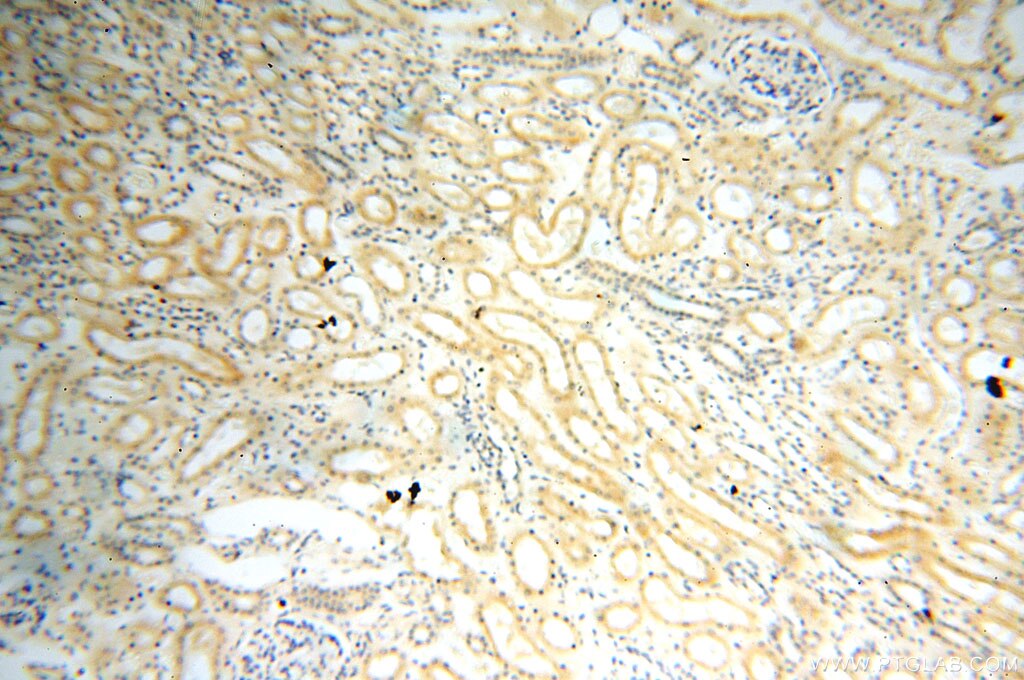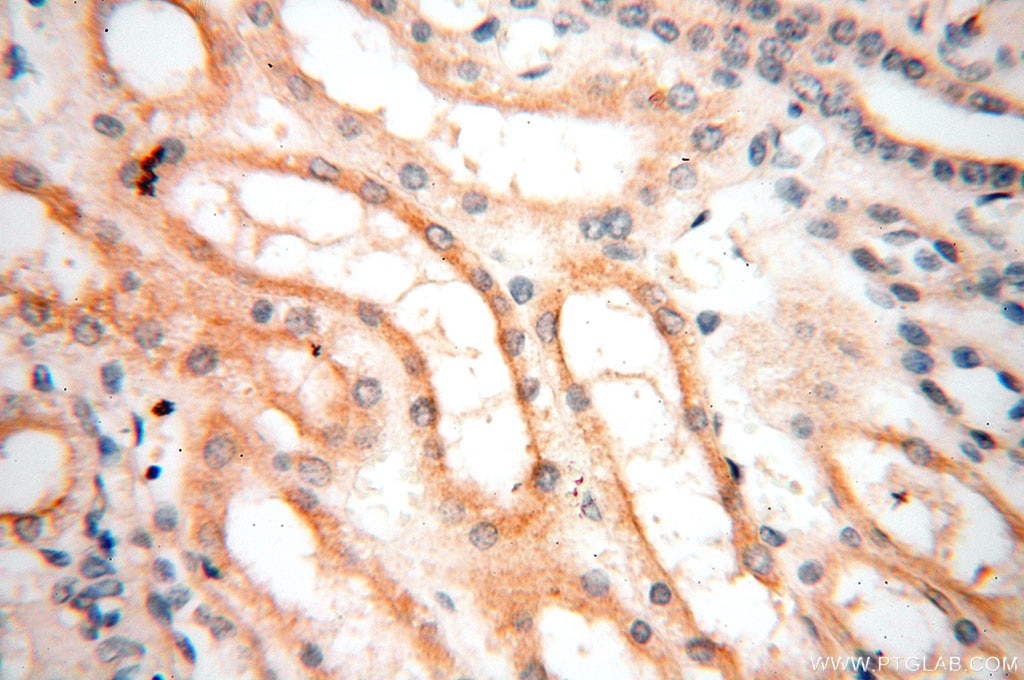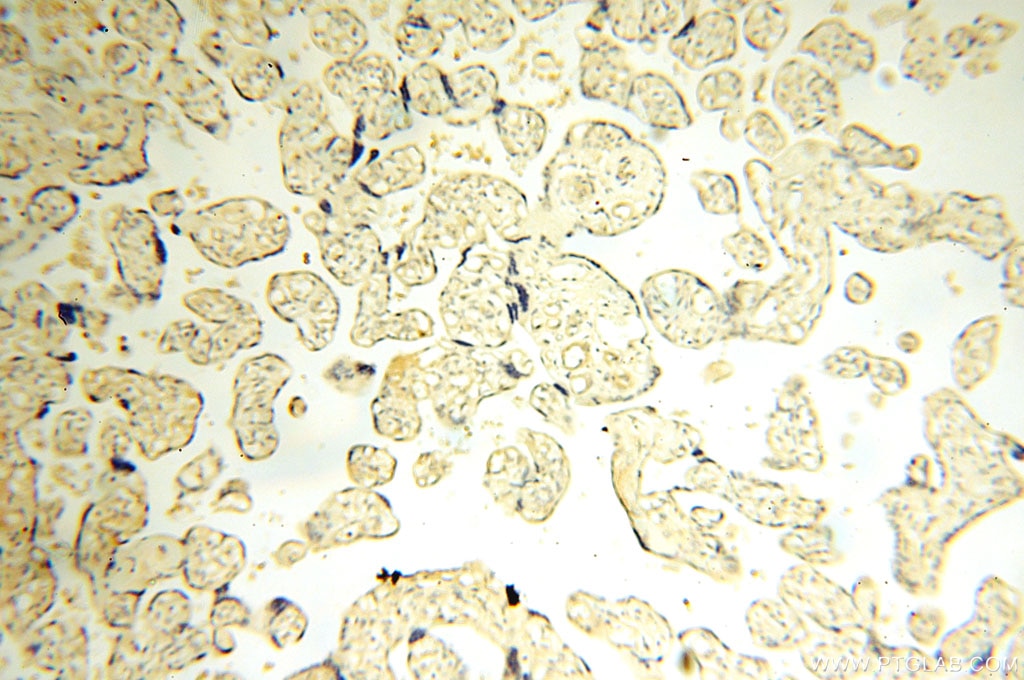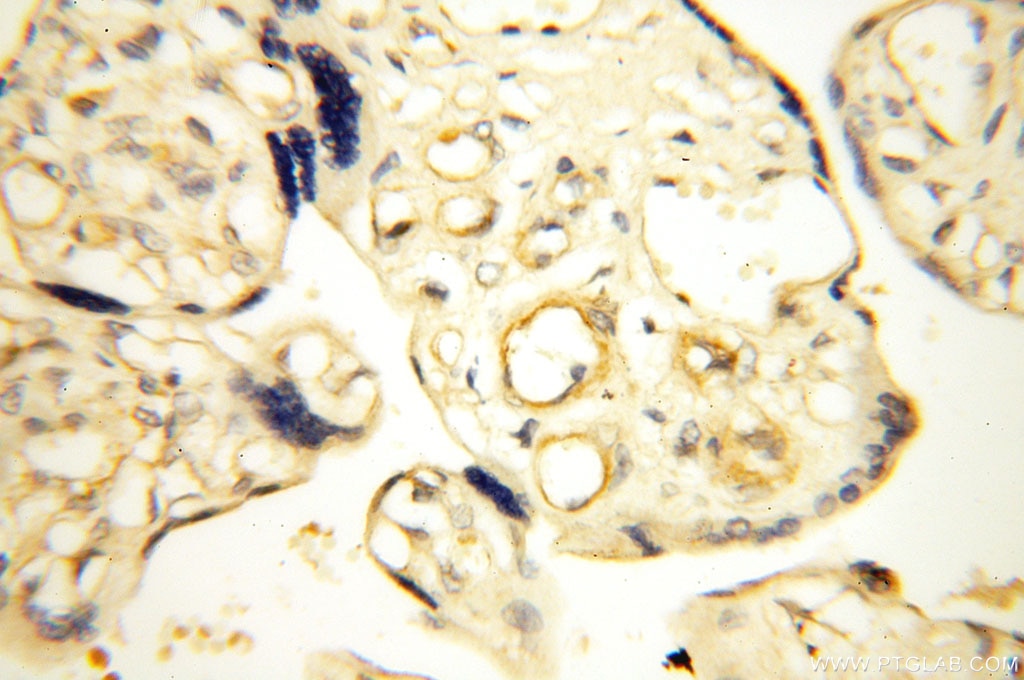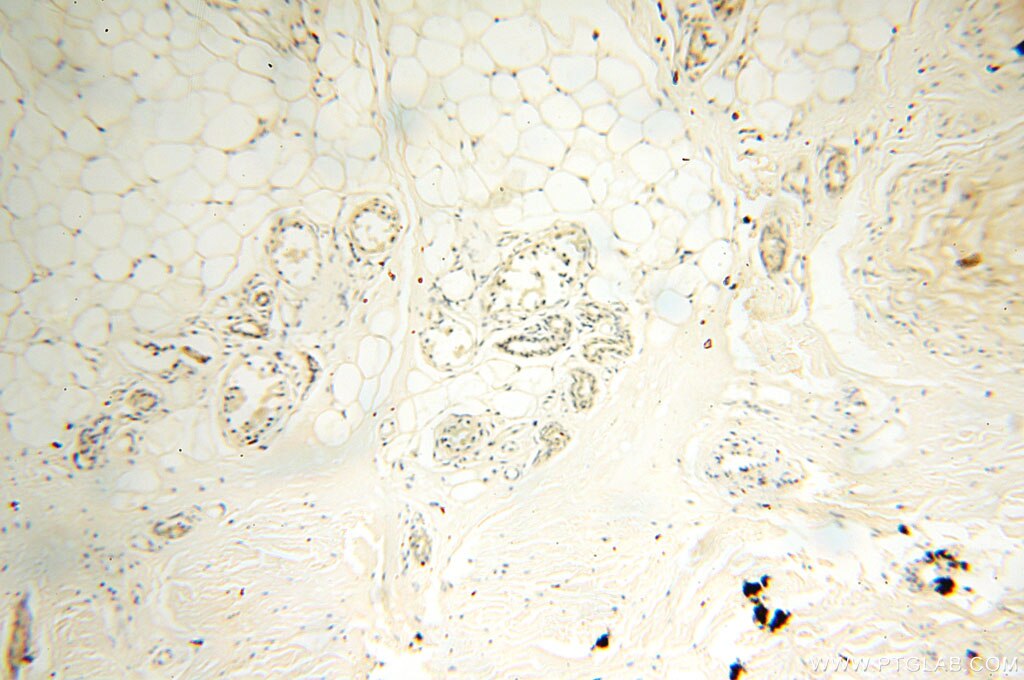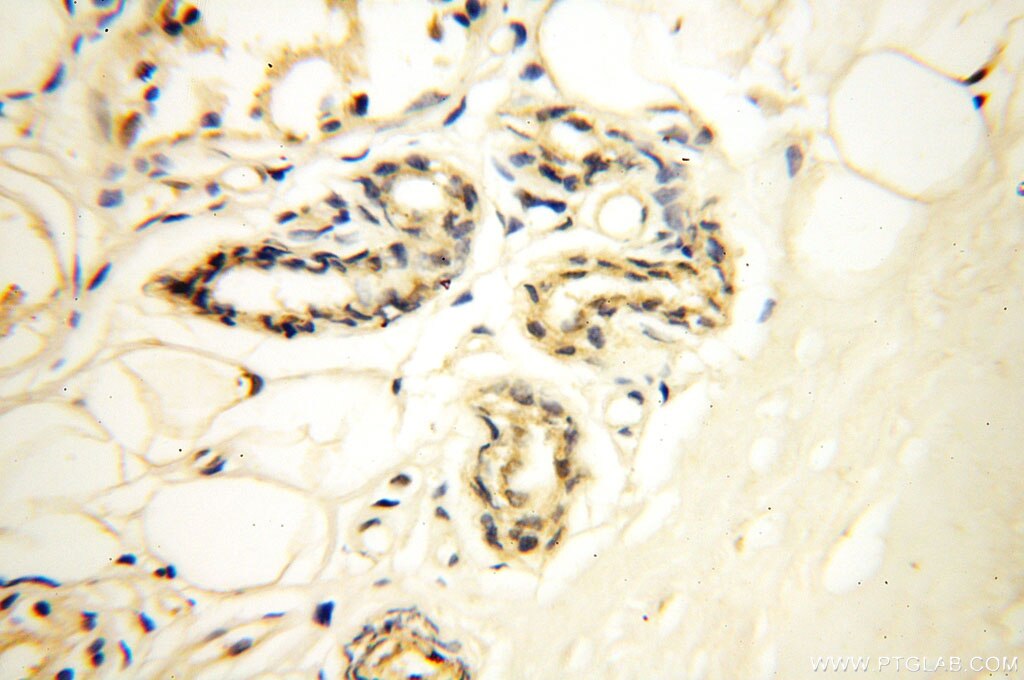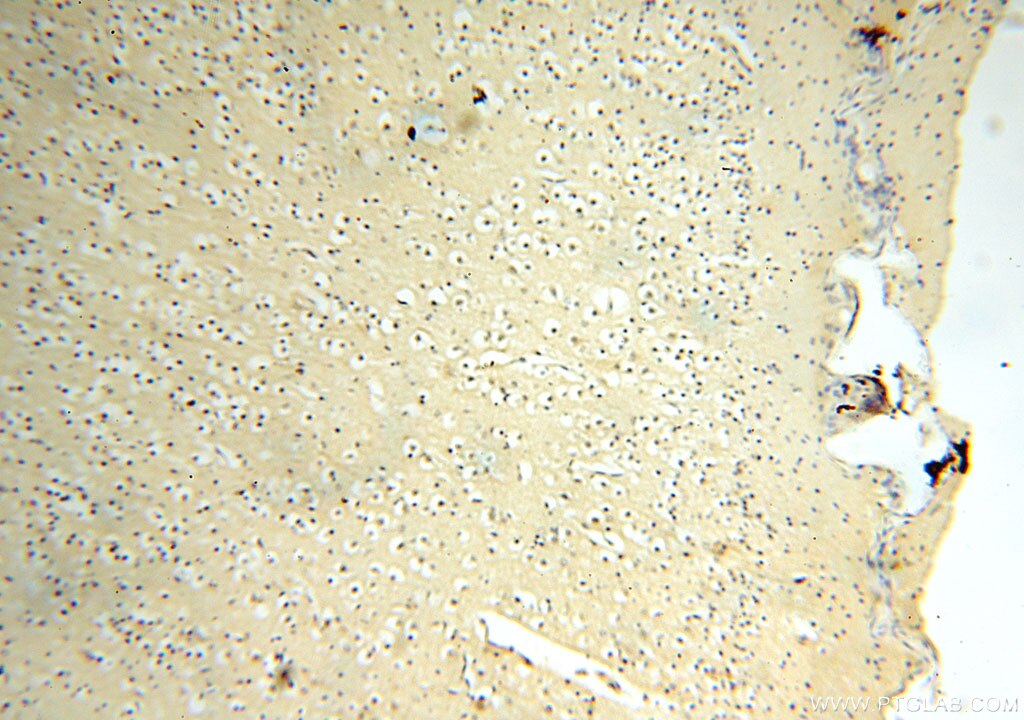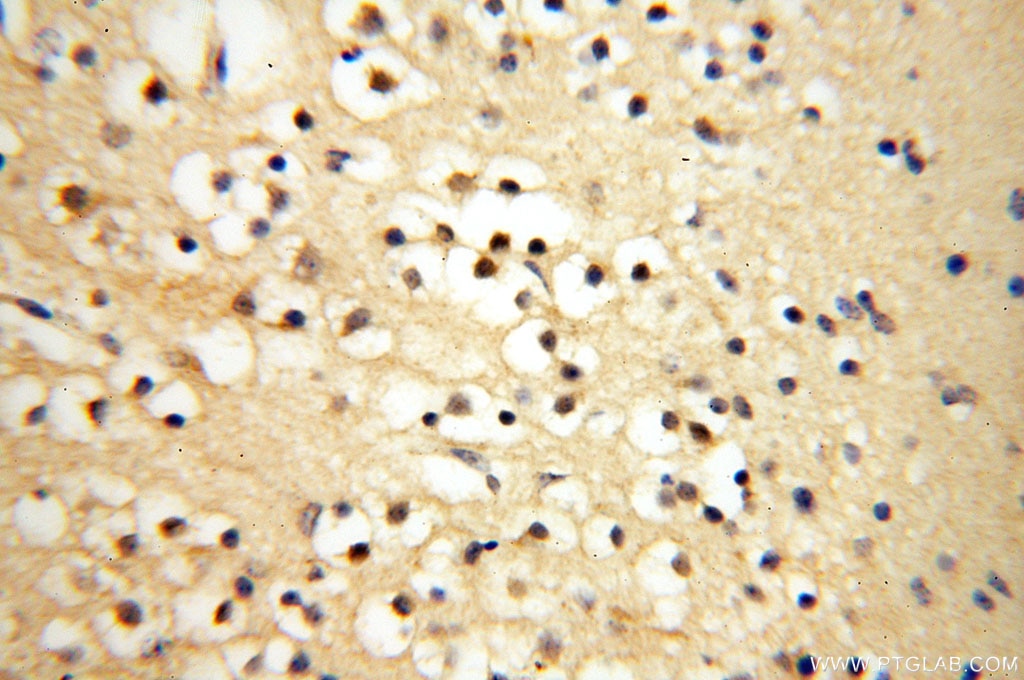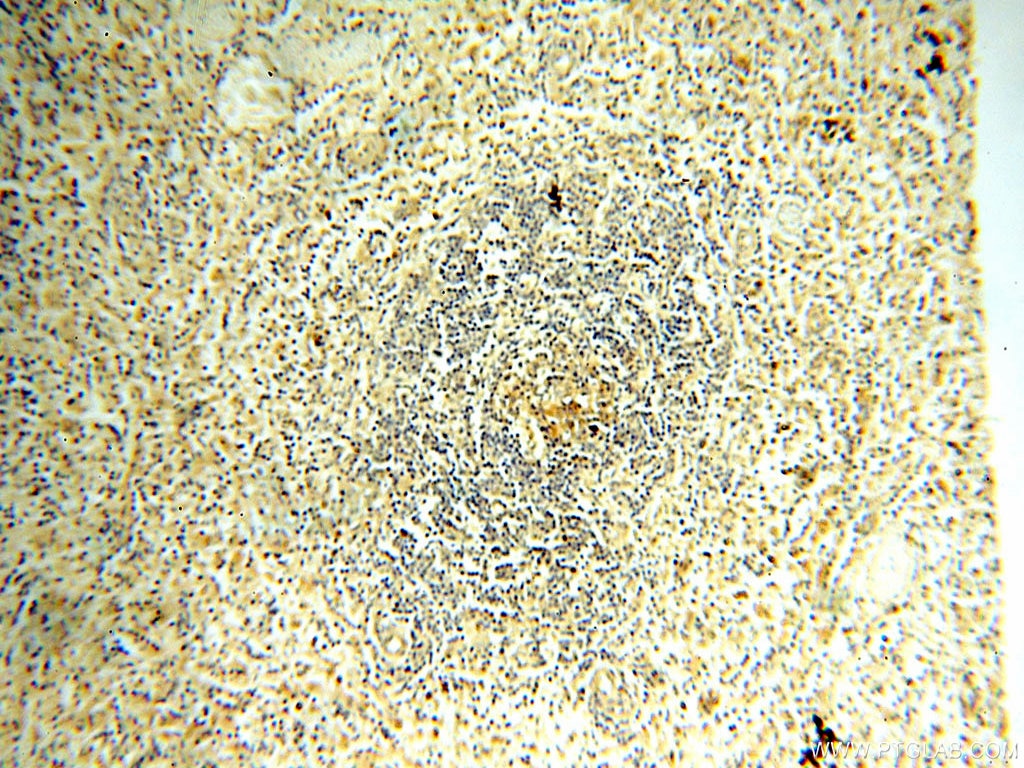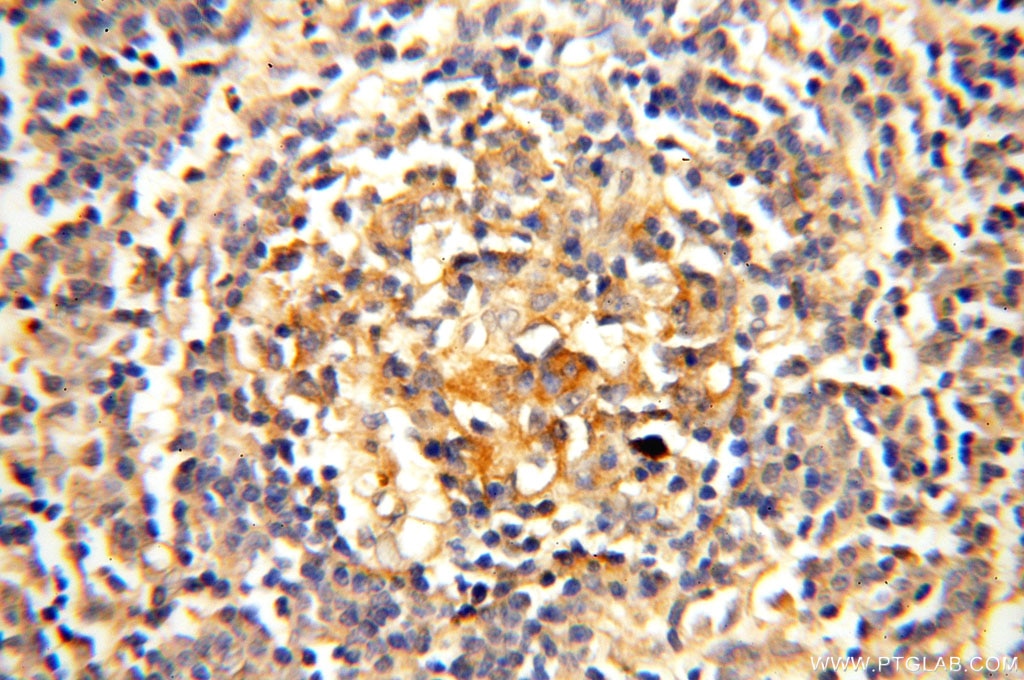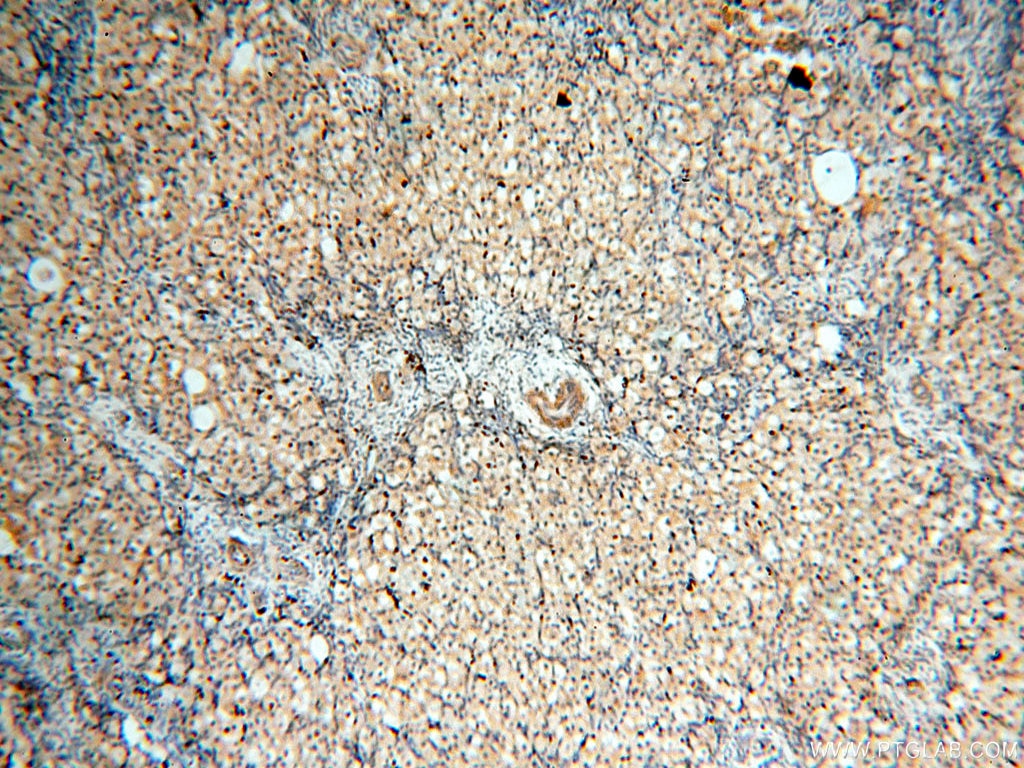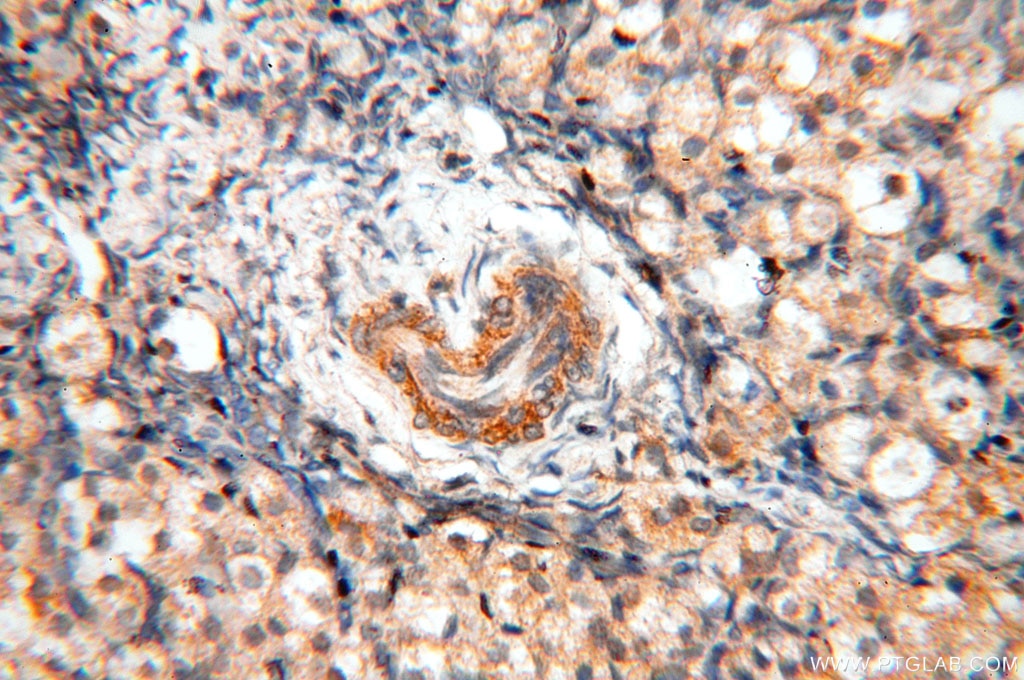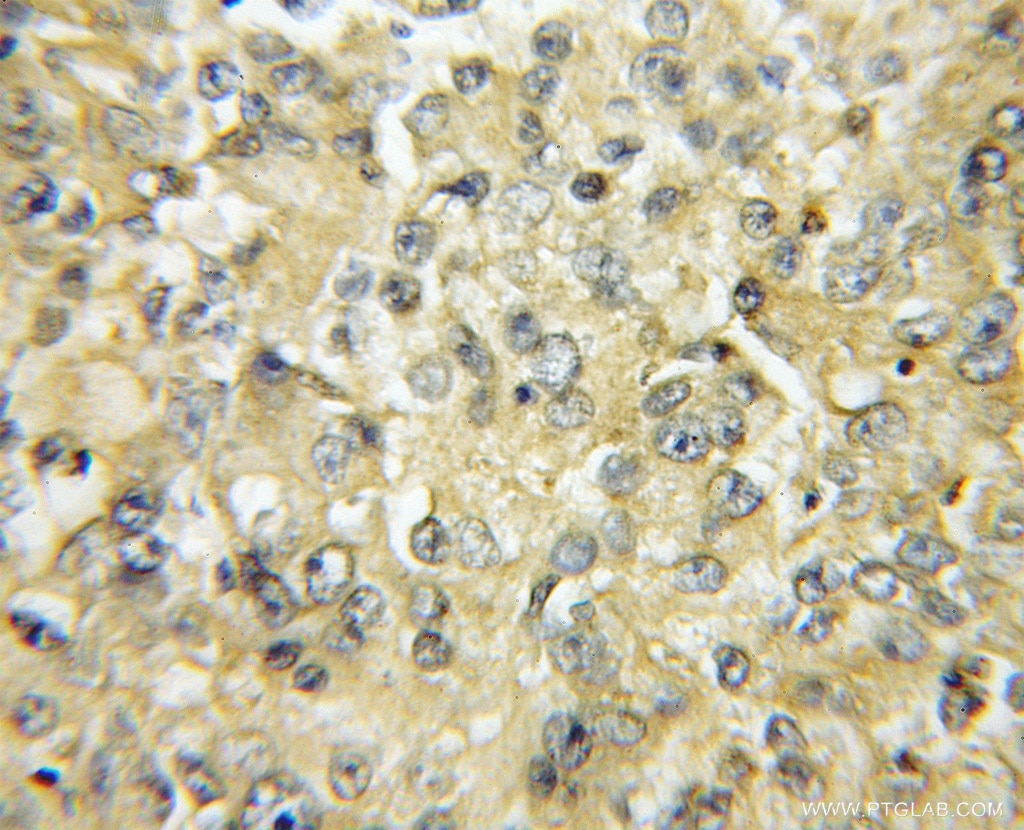Tested Applications
| Positive IHC detected in | human lung tissue, human heart tissue, human kidney tissue, human placenta tissue, human skin tissue, human brain tissue, human spleen tissue, human ovary tissue, human lung cancer tissue Note: suggested antigen retrieval with TE buffer pH 9.0; (*) Alternatively, antigen retrieval may be performed with citrate buffer pH 6.0 |
Recommended dilution
| Application | Dilution |
|---|---|
| Immunohistochemistry (IHC) | IHC : 1:200-1:1000 |
| It is recommended that this reagent should be titrated in each testing system to obtain optimal results. | |
| Sample-dependent, Check data in validation data gallery. | |
Published Applications
| WB | See 5 publications below |
| IHC | See 1 publications below |
| IF | See 1 publications below |
Product Information
11850-1-AP targets Surfactant Protein A in WB, IHC, IF, ELISA applications and shows reactivity with human samples.
| Tested Reactivity | human |
| Cited Reactivity | human, mouse, pig |
| Host / Isotype | Rabbit / IgG |
| Class | Polyclonal |
| Type | Antibody |
| Immunogen |
CatNo: Ag2417 Product name: Recombinant human SFTPA1 protein Source: e coli.-derived, PGEX-4T Tag: GST Domain: 132-248 aa of BC026229 Sequence: MTVGEKVFSSNGQSITFDAIQEACARAGGRIAVPRNPEENEAIASFVKKYNTYAYVGLTEGPSPGDFRYSDGTPVNYTNWYRGEPAGRGKEQCVEMYTDGQWNDRNCLYSRLTICEF Predict reactive species |
| Full Name | surfactant protein A1 |
| Calculated Molecular Weight | 248 aa, 26 kDa |
| GenBank Accession Number | BC026229 |
| Gene Symbol | Surfactant Protein A |
| Gene ID (NCBI) | 653509 |
| RRID | AB_2185360 |
| Conjugate | Unconjugated |
| Form | Liquid |
| Purification Method | Antigen affinity purification |
| UNIPROT ID | Q8IWL2 |
| Storage Buffer | PBS with 0.02% sodium azide and 50% glycerol, pH 7.3. |
| Storage Conditions | Store at -20°C. Stable for one year after shipment. Aliquoting is unnecessary for -20oC storage. 20ul sizes contain 0.1% BSA. |
Background Information
Surfactant protein A (SP-A), is the major protein component of pulmonary surfactant involved in surfactant-related function or structure and in the regulation of inflammatory processes and innate host defens. In humans and primates, SP-A1 (SFTPA1) and SP-A2 (SFTPA2) genes encode SP-A, and these two SP-A genes have high homology (PMID: 34484180, PMID: 19392648). This antibody can recognize both SP-A1 (SFTPA1) and SP-A2 (SFTPA2).
Protocols
| Product Specific Protocols | |
|---|---|
| IHC protocol for Surfactant Protein A antibody 11850-1-AP | Download protocol |
| Standard Protocols | |
|---|---|
| Click here to view our Standard Protocols |
Publications
| Species | Application | Title |
|---|---|---|
Sci Total Environ Protein lysine acetylation played an important role in NH3-induced AEC2 damage and pulmonary fibrosis in piglets | ||
Int J Mol Sci Kub3 Deficiency Causes Aberrant Late Embryonic Lung Development in Mice by the FGF Signaling Pathway. | ||
Cancer Immunol Immunother SFTPA1 is a potential prognostic biomarker correlated with immune cell infiltration and response to immunotherapy in lung adenocarcinoma. | ||
Biochem Biophys Res Commun Increased mortality from influenza infection in long-chain acyl-CoA dehydrogenase knockout mice. | ||
Environ Toxicol Silica nanoparticle exposure inhibits surfactant protein A and B in A549 cells through ROS-mediated JNK/c-Jun signaling pathway. | ||
J Thorac Dis Deletion of LCMR1 in alveolar type II cells induces lethal impairment of lung structure and function in adult mice |

